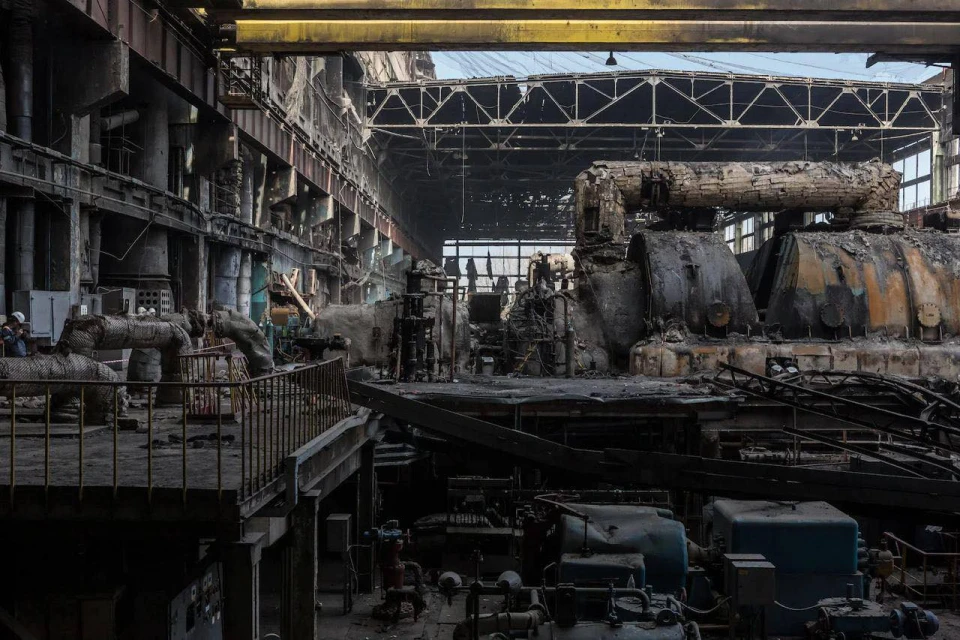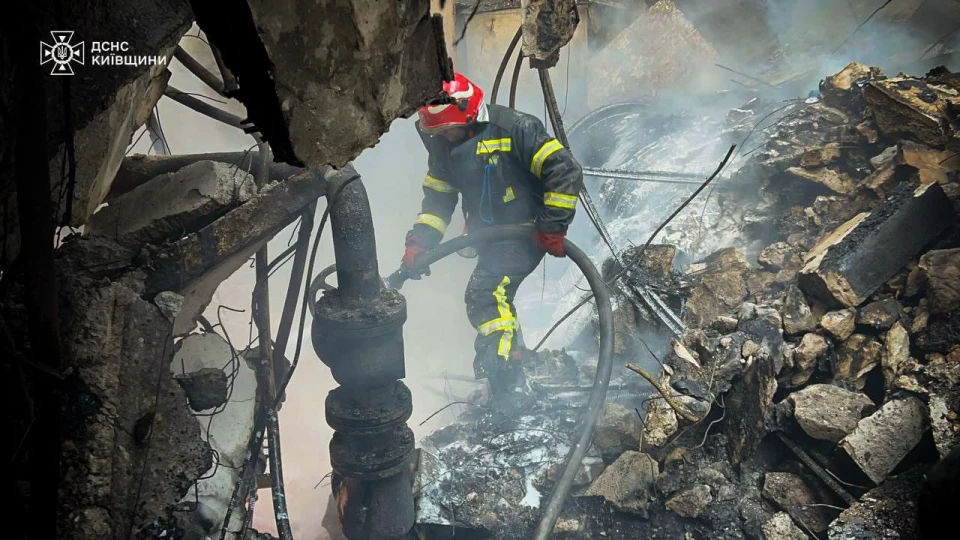
No space for maneuvers: how to stay with electricity when there are no thermal power plants left in Ukraine
Due to Russian attacks, Ukraine has already lost most of its thermal power plants. How does this affect the energy system and what should be done to have electricity even if there are no more thermal power plants
What the text is about:
- The state of Ukrainian thermal power plants after the April 11 attack
- Why coal generation is important for the power system
- Was it possible to protect TPPs from missile attacks?
- Was it possible to protect power stations from missile strikes?
- Is it possible to do without large power plants?
- Business is ready to generate electricity for its needs
The state of Ukrainian thermal power plants after the April 11 attack
As a result of the massive Russian attack on April 11, the Trypilska TPP, which was the largest supplier of electricity to Kyiv, Cherkasy, and Zhytomyr regions, was completely destroyed. Centrenergo stated that with the loss of this plant, they lost 100% of their generation. Zmiivska TPP in Kharkiv region was destroyed in an attack on March 22, and Vuhlehirska TPP in Donetsk region has been occupied since July 25, 2022.
According to the State Property Fund (and Centrenergo was on the list of objects that the state planned to sell as part of a large-scale privatization), the total installed capacity of these three plants was 7,690 MW, which was approximately 15% of the country's total electricity generation capacity.
The situation at DTEK, Ukraine's largest private energy company, is not much better. At the end of March, DTEK's executive director, Dmytro Sakharuk, said that Kurakhivska TPP was heavily damaged by guided aerial bombs and therefore not operating, while all power units at Burshtyn and Ladyzhyn power stations were damaged. Later, the company clarified that 80% of the company's generating capacity had been lost: 5 of the six TPPs were seriously damaged. On April 11, DTEK said that since the beginning of the full-scale invasion, the company's thermal power plants had been shelled almost 170 times.

In addition to coal power generation, Russia is also trying to disable hydroelectric power plants: after a March 22 strike on DniproHES, the plant suffered significant damage and was forced to shut down. On March 29, Kanivska and Dnistrovska HPPs were damaged.
Why coal generation is important
"The peculiarity of thermal power plants is that they are so-called maneuvering capacities," Andriy Shuvar, former director of Burshtyn TPP, tells Espreso. "Electricity consumption is uneven throughout the day, there are so-called peak loads, and there are hours when consumption drops significantly. Nuclear power plants operate at a uniform capacity, and coal-fired power plants balance production. Now, after all these attacks, the only way to balance is through hydroelectric power plants, but they are also a target for Russia."
According to Andriy Shuvar, about half of Ukraine's electricity is generated by nuclear power plants.
"There were periods when the proportion of NPP and TPP generation reached almost 50/50, it was 60/40. Hydropower plants accounted for a small share. In recent years, the share of TPPs has dropped to about a third. I can't say what the situation is as of now, because electricity production from renewable sources is growing. And along with the loss of generation due to Russian attacks, we also have a drop in consumption, because industrial enterprises are also being destroyed," says Andriy Shuvar. "As for renewable energy, it cannot provide the necessary maneuverability, because its production cannot be regulated. If there is wind, the windmills work, if there is no wind, they do not. The sun also shines when it shines, not when we need it."
Was it possible to protect TPPs from missile strikes?
Both energy and military experts agree that there is no other way to protect power plants than modern air defense systems. Physical protection can only save from sabotage and reconnaissance groups and from debris, but not from Kinzhal missiles. At the same time, Centrenergo has been accused of lacking protection because it allegedly received funds for it.
"Thermal power plants are also huge facilities. Each of the power plant's turbines, together with the boiler plant, covers an area the size of a football field and as high as a five- or six-story building. And there may be as many as 12 such turbines. "Such a huge facility cannot be protected by concrete blocks, sandbags, or other external structures, they can only be covered by air defense," wrote Sviatoslav Pavliuk, executive director of the Energy Efficient Cities of Ukraine association.
"Security measures at such stations may include protecting the energy system from the failure of the power plant itself, accumulating fire-fighting equipment, or covering individual elements such as transformers with sandbags. If a missile hits any part of the power plant, it will either cause a part of the structure to collapse or damage individual elements of the system, and it will be out of service. For how long depends again on what is damaged. Therefore, do not attack the power engineers or government officials: nets, concrete blocks and bags are of little help here."
Is it possible to do without large power plants?
Despite the loss of a significant part of its generation capacity, Ukraine still produces enough electricity, so we only have a shortage in the morning and evening hours.
"If you look at Ukrenergo's reports, Ukraine exports electricity during the day and at night. In addition, the Poles help us to buy excess electricity in the daytime on an emergency basis. So the problem here is not the amount of energy that someone lacks. The problem is in the balancing provided by thermal power plants," energy expert Hennadiy Riabtsev told Espreso, "That is why we have a shortage of energy from about 7 to 10 p.m. every day. Therefore, from the same reports, we can see that Ukraine buys a fairly large amount of energy during these hours. And after the recent attacks, this shortage of energy during peak hours is increasing."
According to the expert, due to the fact that it is the off-season and electricity consumption is generally lower than in summer or winter, the population does not feel this shortage yet.
"The main task for Ukrenergo now is to decide how to meet peak loads and decentralize generation. That is, to restore the operation of large energy facilities without guaranteeing their protection from further attacks is to work for the enemy. Why restore something that will be destroyed again?" says Hennadiy Riabtsev.
Both Hennadiy Riabtsev and Sviatoslav Pavliuk agree that instead of restoring large facilities, many small ones should be installed. In particular, these are cogeneration units that can generate both heat and electricity.

"If we talk about Kharkiv, where there are hits every night, what is the point of restoring large facilities there? It would be better to install a network of cogeneration units in different districts of Kharkiv. It will be cheaper and meet the needs of consumers. After all, it is harder to destroy many small plants than one large facility," Riabtsev says.
Small decentralized generation is also a way out for industrial enterprises. Moreover, according to the expert, many factories once had such installations, but they were not used because they were more expensive to maintain than receiving heat and electricity from the general grid. However, the situation has changed now.
"In my opinion, small-scale generation is what will allow consumers to have heat and light in the next heating season. This is what we need to work on now," he says.
Business is ready to generate electricity for its needs
The owner of Nova Poshta postal and courier company, Volodymyr Popereshniuk, has already announced the creation of a company that will generate electricity.
"When the Russians recently started to hit the power generation, we realized that we needed to strengthen the autonomy of energy supply. So we created Nova Energy, which will generate energy on a regular basis, including electricity generated by the sun and gas. I am sure that other companies will do the same," he wrote. - "If regulations and prohibitions do not interfere, entrepreneurs will quickly create the capacity needed for the economy. There are no problems that entrepreneurs cannot solve."- News













































